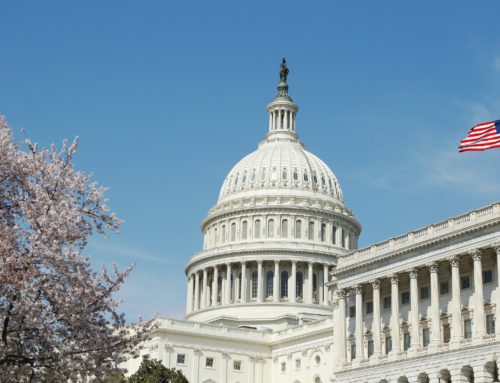Lettieri will speak on the economic impact of the stark decline of American entrepreneurship
Washington, D.C. – Today, John Lettieri, cofounder and senior director for policy and strategy at the Economic Innovation Group (EIG), will testify before the Senate Committee On Small Business and Entrepreneurship at its hearing on the state of entrepreneurship entitled, “America Without Entrepreneurs: The Consequences of Dwindling Startup Activity.” The hearing, which starts at 10:00 a.m., can be viewed via livestream here.
“Nothing is more integral to our nation’s cultural or economic identity than entrepreneurship,” said Lettieri in his prepared testimony. “However, as a nation we now face many of the same challenges that cripple and calcify once-innovative businesses: growing risk aversion, slowing growth rates, and broader transformations that threaten our market position.”
Lettieri also stated, “In short, the decline of U.S. economic dynamism is the fundamental challenge of our time, and the decline of entrepreneurship is its central and most problematic feature.”
Lettieri’s full written testimony can be viewed here.
Key highlights are below:
Trends In Entrepreneurship. EIG’s research has demonstrated that in the economic recovery following the Great Recession, the U.S. saw an unprecedented collapse of startup growth and an intense concentration of entrepreneurship in a handful of super-performing counties. Other recent research has highlighted a generational decline in entrepreneurship among Millennials, lower likelihood of high-growth startups succeeding, and growing dominance of incumbent firms.
Consequences Of Declining Entrepreneurship. The decline of entrepreneurship is likely to decrease innovation and competition, lower productivity rates, increase both income and geographic inequality, and ultimately reduce the number of new industries and quality jobs in the U.S.
Causes Of The Startup Slowdown. The biggest issue facing startups is the difficulty in accessing capital, particularly in those areas hit hardest by the economic recession. This challenge to our entrepreneurial ecosystem is accentuated by other issues like growing regulatory complexities, increased licensing requirements, and unique generational factors such as student debt, lower home ownership and a weak economy upon entering the labor market.
Policy Solutions. Policymakers can implement effective pro-entrepreneurship solutions through fostering greater access to capital, new policy experimentation, evaluation of regulatory barriers to entry, and support of the need for better public data. The bipartisan Investing in Opportunity Act, for example, provides market driven incentives for increased investment in U.S. communities.
About John W. Lettieri
John Lettieri is co-founder of the Economic Innovation Group (EIG) and serves as its senior director for policy and strategy. He leads EIG’s policy development, economic research, and legislative affairs efforts. Prior to joining EIG, John worked in both the public and private sectors, including as Vice President of Public Policy for the Organization for International Investment (OFII) and as aide to former U.S. Senator Chuck Hagel. John is a graduate of Wake Forest University and serves on the Board of Regents at The Fund for American Studies and the Board of Advisors for Lincoln Labs.





